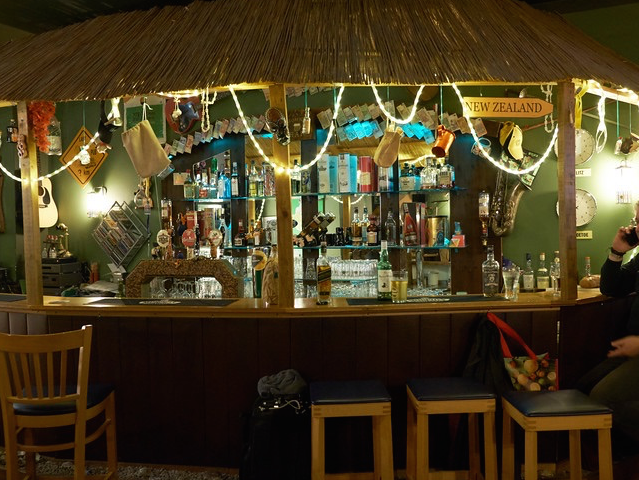BERLIN (February 2014) – I met a doctor at the local pub last night. Actually, we’d met before this, so we were already familiar to each other when I saw her. She smiled, welcoming me into her little group at the bar.

I mentioned my current interest – reading about the Weimar time. I expressed my belief that this period, between the end of WW I, in 1918, and Hitler’s rise to power, in 1933, was not a time of peace, as is commonly believed, but a time of an intense ideological civil war. During this time, the weak German democracy appeased its most militant, right-wing nationalists. At this time, they were just a small-but-loud minority, whose goal was to purge the country of everything to its left – of thousands of creative and intelligent people.
Beginning in 1918, the proto-Nazis worked on a variety of fronts: They fought in small, local elections while death squads conducted political executions. More than 320 political murders happened between 1918 and 1924. The ultra-conservatives politicized everything — from science to religion and art — and cultivated fear of the still-new Russian revolution. All this was happening in the decade before 1933, when they took absolute power, creating the one-party state.
“Loyalty is a powerful thing,” she said….
“He hated Hitler,” she said. “He always had.”
The army sent her father to Africa where, for a time, he fought under Rommel. When he saw a chance, however, he went AWOL. He was captured in Egypt, where he was imprisoned, she said.
“When he asked for a cell that looked out at the pyramids, they gave it to him. He spent the rest of the war looking out at the Egyptian pyramids every day….”
Afterward, he was reunited with his wife.
“They were as different as they could be,” the doctor told me. “He had always hated the Nazis. But not my mother. She had joined the League of German Girls, loved Hitler and remained loyal…. She never believed what had happened in the death camps, just denied it….”
I was amazed.
“Your parents disagreed over fascism?” I asked. “And, yet, they stayed together?”
She nodded.
“Out of loyalty to each other. Devotion. Tradition. Loyalty is a powerful thing.”

